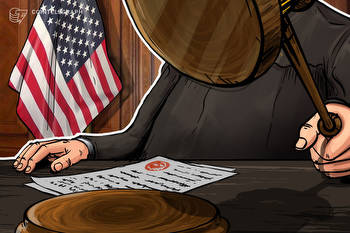US regulators crack down on Slotie metaverse casino

Four U.S. state regulators have filed actions against Slotie, a virtual casino they allege lured investors into an illegal gambling operation built in the metaverse.
According to Texas, Kentucky, Alabama, and New Jersey regulators, Slotie sold over 10,000 NFTs to investors in the U.S. and beyond. These NFTs, it claimed, would entitle investors to a share of the company’s profits, effectively making them shares in the firm.
Despite selling securities, the company failed to register them with the U.S. Securities and Exchange Commission (SEC). Additionally, it failed to provide the investors with the required information, such as the company or founders’ addresses, assets, liabilities, and revenue.
Slotie is based in Georgia and started its operations in October 2021, according to the Texas State Securities Board. It still touts its NFTs as investors’ “ticket into the largest and fastest-growing online casino network on the blockchain.”
The four watchdogs want Slotie to immediately cease and desist from selling the securitized NFTs until it obtains regulatory approval from the SEC. Their court filing gives the company one month to request a hearing on the issue. Should the founders violate the order, they are liable to pay up to $10,000 in fines.
the metaverse could still be exploited by scammers to target unsuspecting investors.
“The latest metaverse investment products — NFTs that purport to provide passive income — often bear significant undisclosed risks. These risks are often significant, and investing in virtual realities can leave investors virtually broke,” he said in a statement to the media.
Slotie isn’t the first metaverse casino U.S. regulators have cracked down on. In May this year, five U.S. state regulators, including the TSSB and Wisconsin’s Department of Financial Institutions, filed enforcement actions against Flamingo Casino Club. The project, whose name resembled a legal Vegas-based physical casino, claimed to be building a metaverse casino and sold securitized NFTs to fund the development. In addition to securities laws violation, the company was heavily linked to Russia.
A month earlier, Texas and Alabama had ordered Sand Vegas Casino Club to cease selling NFTs. The two state watchdogs alleged that the company misled investors to believe that the 11,000+ NFTs it sold were not securities.





































